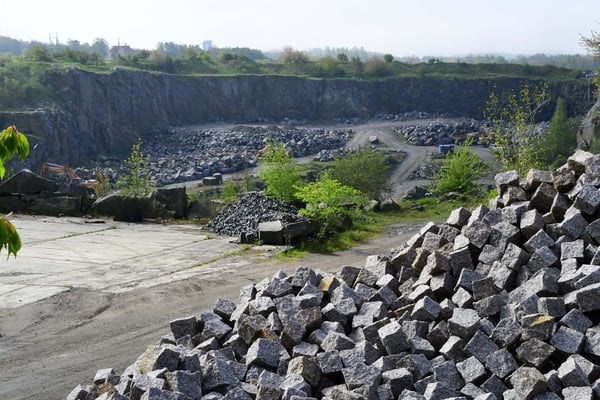It’s been some time since the European Commission released its Omnibus proposal. So, what are Swedish sustainability decision-makers thinking? What lessons have been learned, and what’s most important to focus on in sustainability reporting?
We spoke with sustainability managers from three different sectors to gain insights into their perspectives – the restaurant chain Max, the air purification supplier Absolent Air Care Group, and the real estate company Diös.
Max: Continuing our work with CSRD
Birgitta Lehtonen is a business developer and project manager for CSRD at Max Burgers. The company has extensive experience in sustainability work. Much was already in place when they began preparing for potential CSRD reporting.
- We started calculating our climate emissions across the entire value chain back in 2008 and have also been sustainability reporting for a long time, so our starting point for CSRD is fairly strong. However, we haven’t done a double materiality analysis in this format before. For us, it’s a new way of thinking, especially since CSRD requires more detailed reporting.
She remains calm about the EU’s shifting stance on CSRD:
- We’re preparing as much as we can. At the same time, it’s important to remember that Omnibus is still just a proposal. The legislative change isn’t finalized yet, but regardless of the outcome, we’ll continue working based on CSRD. We see many positive effects from working in this way.

Birgitta Lehtonen
Business developer & project manager for CSRD, Max Burgers
“Risky to pull the handbrake”
Even though CSRD brings more administration, especially in the first year, Birgitta is convinced it will add value and contribute strategically once their new structure is in place. She sees risks in slowing down sustainability efforts because of Omnibus:
- I know many companies are choosing options like VSME – and that’s better than nothing, of course. But we believe it’s risky to pull the handbrake too early. If the legislation isn’t changed, they could find themselves in a difficult position. It’s better to be proactive and do what you can in time.
Absolent Air Care Group: A voluntary commitment
Max isn’t alone in seeing the benefits of CSRD-based reporting. At Absolent Air Care Group (AACG), which provides air purification solutions, the company fell under the second phase for large companies, with reporting scheduled for 2025. Despite global operations and sales in about 50 countries, AACG has just seven employees at its headquarters in Gothenburg. One of them is Ylva Krüger, Senior Vice President People & Planet:
If Omnibus goes through, we won’t be covered, but we’ll still use the concept in some form. Working with double materiality analysis and reviewing our sustainability work has been extremely valuable. It helps us identify and highlight areas we need to improve, but also gives us a clear picture of our strengths.

Ylva Krüger
Senior Vice President People & Planet, AACG
“Alignment between management and operations”
So, what’s the sustainability focus for a company like AACG, whose business idea already revolves around cleaner air and improved working environments?
- For us, it’s about focusing on the areas where we can make the biggest difference – with our customers. As a small company, we can’t influence our suppliers significantly, but we can choose the right suppliers.
Ylva already sees positive effects from working with CSRD in terms of sustainability efforts, KPIs, and reporting, as well as how it connects to the business strategy. The reporting has sparked important discussions:
- Interestingly, it’s also made us more aware of the positive impact we’re having. But most importantly, we’ve achieved alignment between the board, management, and operations on sustainability. That has helped us form a shared understanding.
Diös: The transition continues
Real estate company Diös focuses mainly on commercial properties in central locations, from Borlänge in the south to Luleå in the north. Much of their sustainability work has focused on energy savings – an area where they met their 2024 reporting goals.
Linnéa Lord, Sustainability Controller, sees a lot the company can retain from its preparations for CSRD reporting, even if the regulation doesn’t come into effect:
The transition work will continue, even if we’re not affected by the legislation. There’s a lot in the transition process that makes things easier – especially when it comes to reporting and connecting what we do with the strategy, both in terms of climate accounting and annual reports. Once we’re done, we envision a product that is clear, transparent, and easy to understand.

Linnéa Lord
Sustainability Controller, Diös
“Our efforts deliver value”
Linnéa sees benefits in the Omnibus proposal, but that doesn’t mean sustainability work will slow down – quite the opposite:
- If something isn’t relevant, we shouldn’t have to report on it. I think that’s important to remember. Loosening the regulatory burden is fundamentally good, because what matters most is what we do – that our efforts deliver value to us as a company and to our stakeholders. For example, providing data that helps our stakeholders understand us better and helps us draw the right conclusions – whether it’s about water use, energy consumption, or contributing to the development of our cities.
What’s most important to focus on?
So, what do the sustainability managers think is most important going forward? Birgitta from Max believes the fear of doing things wrong may be unnecessarily holding companies back:
- Remember, it’s better to do something than nothing. Even if the directive continues to apply, it’s okay to leave out certain things and focus on what’s material. It’s good to remind yourself that you don’t have to do everything at once – as long as you’re transparent about it.
Ylva from AACG emphasizes the importance of being proactive:
- Focus on improvements! With all the attention on reporting, it’s easy to forget how important it is to be proactive. We’re not going to slow down or stop. A positive effect of Omnibus is that it will give us more freedom to focus our work on what we think is most important – and I believe that’s a fundamentally good thing.
Linnéa is convinced that companies have much to gain by embracing the core ideas of CSRD reporting:
- We aim to halve emissions by 2030 and reach net zero by 2045. That also strengthens us as a company financially. We’re convinced it’s important for companies to continue focusing on standardization, comparability, and transparency in sustainability work – now and in the future.
Want to know more about how Stratsys can support your sustainability efforts? Contact us – we’d be happy to tell you more. You can also read more about Stratsys’ Sustainability Management product here.



